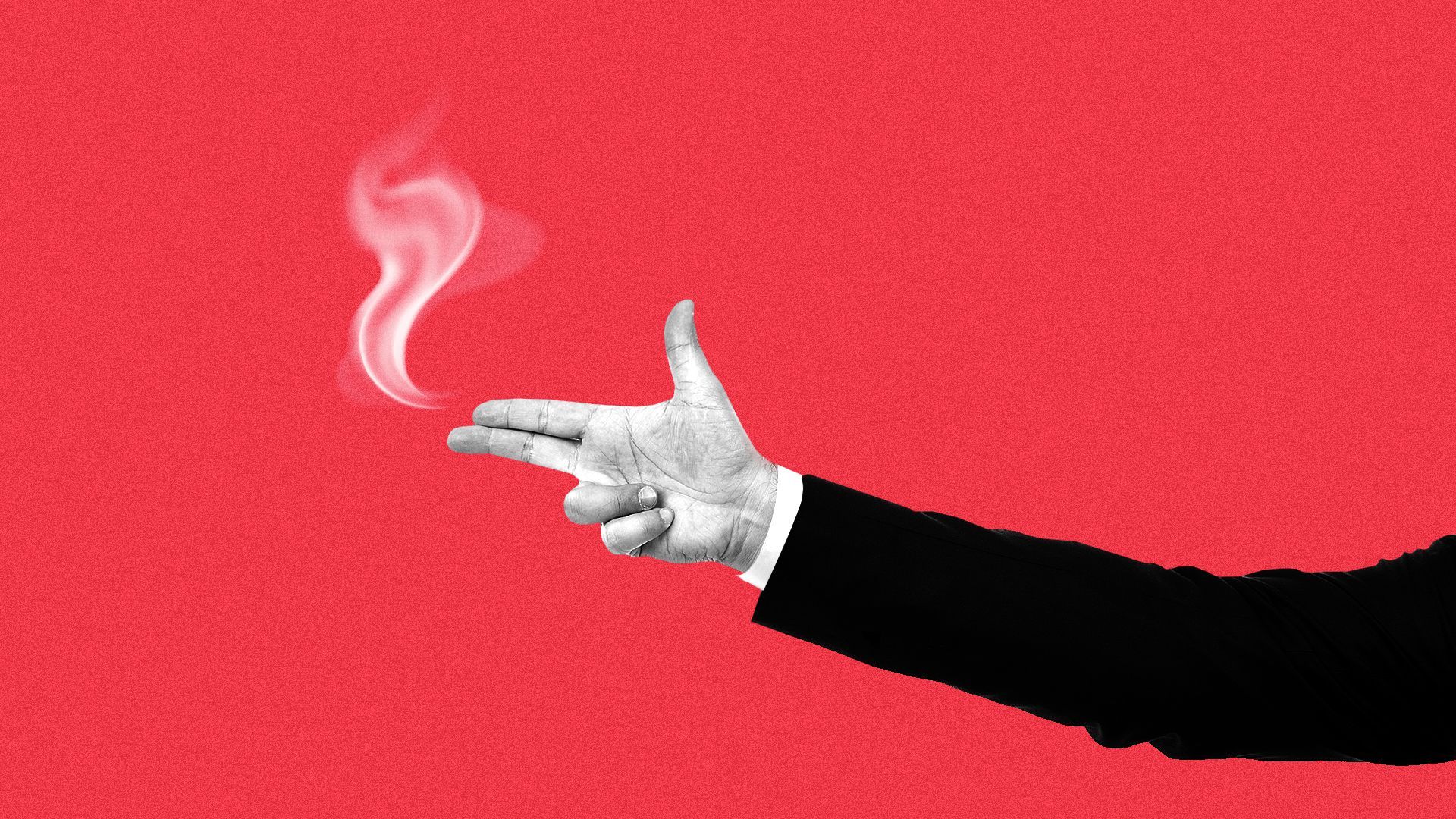The array of far-right groups "standing by" after Trump's call

Illustration: Aïda Amer/Axios
President Trump's refusal to condemn white nationalists during Tuesday night's debate drew a lot of attention — including from the Proud Boys, the far-right group he asked to "stand back and stand by."
Why it matters: The Proud Boys remain relatively small — a Portland rally this past weekend billed as the group's largest-ever gathering drew just a few hundred people. But Trump's failure to condemn extremist groups has been welcomed as an endorsement by a wide constellation of people on the fringes.
Driving the news: After Tuesday's debate, the Proud Boys — described by the Anti-Defamation League as "misogynistic, Islamophobic, transphobic and anti-immigration" — turned Trump's words into a logo and a T-shirt.
The big picture: The Proud Boys are part of a growing set of relatively new, often heavily armed far-right groups with ideologies and memberships that often overlap. The groups have pledged to violently oppose the left and do much of their organizing online.
- The Proud Boys are among the most overtly gang-like of the major groups, sporting uniforms (black Fred Perry polo shirts with gold piping, which the designer recently stopped producing due to the association) and tattoos, and maintaining initiation rites, including requiring members to get into a physical fight for the cause of promoting the supremacy of western culture.
Other groups include:
- Three percenters, named for the myth that only 3% of colonists were willing to take up arms in the Revolutionary War. The militia group has threatened force against Democratic politicians.
- Oath keepers, who seek to serve as private back-up for police forces around the country. Many members are themselves former police or military.
- Boogaloo bois, identifiable by the Hawaiian shirts they typically wear in concert with body armor and, often, Make America Great Again hats. Like the Proud Boys, they bring the winking irony common to online extremism into the physical world. Even the name "boogaloo bois" is a joke — but their call for a second civil war, drawn along ideological lines, appears very real.
- Atomwaffen, the most nihilist of all the major groups, which openly calls for mass murder of lefists, ethnic and religious minorities, LGBTQ individuals and others. It's been linked to killings and terrorist threats in the U.S. and abroad.
That's on top of:
- Local groups like Patriot Prayer, which organizes rallies and disrupts left-wing protests, chiefly in the Pacific Northwest;
- Longstanding hate groups like the Ku Klux Klan; and
- Groups like American Renaissance that seek to put the gloss of academic legitimacy to far-right, racist views.
One key feature common to many of the newer crop of far-right groups: a slipperiness that helps them avoid being pinned down on their extremist beliefs.
- Proud Boys, for instance, will often point to non-white members as proof they're not racist, despite their explicitly racist views.
- Their evasiveness also lets them disclaim members who run afoul of the law. That's just what the Proud Boys did Wednesday, per conservative provocateur Andy Ngo, after a prominent Portland Proud Boys member was arrested on assault and weapons charges.
The bottom line: Any one of these groups on its own represents a small sliver of the far-right fringe. But together they constitute a potential paramilitary force that has an increasingly explicit endorsement from the president and that's hungry for violent clashes with their political opponents.
No comments:
Post a Comment